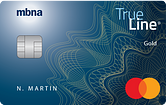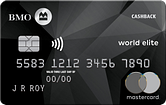Credit cards are a fantastic financial tool when used responsibly. You can build a great credit score, score amazing rewards, get useful insurance coverage, and earn luxurious perks.
That said, it is possible to wreck your credit score and end up in debt if you don’t use the card wisely. We’ll walk you through the 12 most common credit card mistakes and show you how to avoid them from the start.
Key Takeaways
- Only spend what you can pay off each month to avoid interest.
- Avoid making only minimum payments to prevent growing debt.
- Review your statements monthly to catch errors or fraud.
- Check your credit score regularly to stay on top of your financial health.
Never miss an amazing deal again + get our bonus 250+ page eBook for FREE. Join 50,000 other Canadians who receive our weekly newsletter – learn more.
Mistake #1: Treating your credit card like free money
Credit cards make it very easy to imagine that you have free money, when really, you just have access to money. Money that you’ll have to pay back with interest.
You might even get notices from your bank reminding you that you have cash advance opportunities, which are even more financially dangerous. With a cash advance, you can use your credit card at an ATM to withdraw money, but you will immediately start accruing interest. There are no grace periods (unlike with normal credit card purchases, where you have 21 to 30 days).
How to avoid this mistake
Don’t use your credit card unless you know you’ll have money to pay off your monthly debts when the credit card statement shows up.
By only charging what you know you can repay, you’ll earn credit card rewards and stay out of debt.
Mistake #2: Taking the first credit card that comes along
If you’re new to credit cards, it’s easy to make this mistake. You get a pre-approval offer, and you jump at the chance even though you haven’t shopped around or researched the card in question.
The mistake is that you might get a credit card that’s not doing you any favours. Maybe you have an annual fee that’s too high, you aren’t getting rewards fast enough, or the interest rate is sky-high.
How to avoid this mistake
Fortunately, it’s easier than ever to shop for credit cards, so you get the right one for your needs and budget.
To make things even simpler, we devised an unbiased math-based algorithm to help you cut through the marketing speak to figure out what credit card is best for you.
Just take our 3-minute credit card quiz, and we'll recommend some of the best credit cards for you based on what YOU value the most.
Mistake #3: Only paying the minimum payment
You might think that making the minimum payment every month is a responsible use of your credit card. Sad to say, that’s not true.
If you only make the minimum payment, you’ll never be able to pay off the card if you continue using it. This is because you’ll continue to be charged interest, so your balance will grow and grow, and you’ll be further in debt.
How to avoid this mistake
Instead of making the minimum payment and calling it a day, choose 1 of these tactics:
- Pay your credit card in full every month: This requires discipline and good budgeting, but it means you’ll avoid paying interest and your balance won’t continue to grow.
- Take advantage of a balance transfer offers: With a balance transfer credit card, you can open an account and transfer all of your current credit card debt to it. These cards often offer 0% or 1.99% interest rates for a set period. Aggressively pay down the balance during this promo period. Don’t use this card for purchases—just pay down the existing debt before the promo period ends.
- Get a low-interest credit card: 20% is the average credit card interest rate in Canada, so if you find a card with a lower rate, you can save some money. Stop using the higher interest card and prioritize paying it off. Then, use the low-interest credit card for your purchases. You might not earn all the fancy perks and benefits of other cards, but not paying as much in interest is a good trade-off.
The best low interest credit card in Canada is the
Mistake #4: Ignoring your monthly credit card statements
We get it. No one likes reading through pages of expenses to ensure they all add up. However, if you skip this monthly step, you may be paying for things you didn’t authorize or for mistakes, such as being charged twice for a single transaction.
You will have to contact the merchant or your credit card company if there are errors, but remind yourself that you’ll be getting money back, so it’s worth it.
How to avoid this mistake
Schedule a time each month to review your statement. If it helps, try to pencil in something you enjoy with it. For instance, splurge on your favourite dessert, then settle in and read through the statement.
Mistake #5: Not reading the fine print
This is a big mistake when you take out a credit card. It’s so easy to gloss over little details when you’re paying attention to big things like interest rates and rewards.
That said, you should take the time to read up on how the credit card company charges you for various fees. For instance, what’s their policy on late payments? How are cash advances charged? What’s the card’s grace period?
You can zoom your browser to 200% to read the fine print and get all the information. After all, it’s much better when you understand what you’re getting yourself into.
How to avoid this mistake
Never sign credit agreements or legal documents without reading the fine print. It’s a legal contract between you and the credit card issuer, so by signing, you agree to all the terms in the document.
Take the time to read through all of the fine print before applying for a new credit card. You'll avoid some costly mistakes in the process (and you may stumble across some extra credit card benefits you didn't even know existed).
Mistake #6: Having too many credit cards
Credit card companies love to send out offers, so it’s not surprising that Canadians have an average of 2 to 3 credit cards.
While that gives you flexibility with earning rewards, if you’re struggling to make credit card payments, having more cards isn’t necessarily better. So, how many credit cards should you have in your wallet?
There’s no easy answer, as some people have no trouble managing a handful of credit cards, while others struggle to stay on top of just one. The key is knowing your limit and how much you can responsibly handle.
How to avoid this mistake
Only apply for a credit card if you need one. If you’re interested in getting another card, consider why you want it. Are you primarily interested in the rewards, or is there a specific reason you need to obtain the card?
For example, if you just have a student credit card that you’ve used for years to build credit, and you’re looking for a card with travel rewards, you might shop around for a new card that matches your spending habits. Remember, only add a new card if you know you’re responsible enough to handle more credit.
Mistake #7: Failing to keep an eye on your credit score
Most people don’t worry about their credit scores until it’s time to make a big purchase, but this is a mistake. If it’s been years since you checked your score and it’s in the dumps, it can take time to correct errors or develop good financial habits that will improve it.
You can check either of the 2 major credit bureaus – Equifax and TransUnion. Lenders will report your payment activity to one or both of them regularly. Every time you make a payment on your credit card, pay a car payment, or settle your cell phone or utility bills, these transactions are reported.
Late payments can negatively impact your score, but being responsible with your credit card use can help improve it, earning you better approval odds and potentially lower interest rates down the road.
How to avoid this mistake
Now, thanks to the internet, it’s easier than ever to request your score from both credit monitoring bureaus. You might also get free credit score access through your bank or financial service.
Make a point of checking your credit score at least once a year, if not every few months. This way, you can correct errors and be motivated to stick to your financial plans.
Mistake #8: Using your debit card instead of a credit card
Sometimes, credit cards get a bad rap since credit card misuse can lead to debt. Some people might argue that it’s always better to use your debit card so there’s no risk of maxing out your credit. However, here’s what you miss out on by paying with cash or a debit card:
- Fraud protection: Almost all credit cards have zero liability for fraudulent charges, including a lost or stolen card, as long as you report problems quickly. Plus, unlike debit, your money in the bank stays in the bank.
- Healthy credit score: If you pay your credit card balance in full every month, you’re credit score will thank you.
- Free insurance: Even lacklustre credit cards come with some insurance coverage, while the best offer amazing insurance packages that may include purchase protection, travel accident, emergency medical, trip cancellation, or rental car theft and damage coverage.
- Valuable perks: Premium credit cards offer amazing perks and benefits, including a personal concierge service, travel discounts, airport lounge access, roadside assistance, upgraded status in hotel or airline programs, special access to events and concerts, and more.
How to avoid this mistake
Don’t be afraid to reach for your credit card (as long as you remember to pay it off promptly).
If you’re having trouble qualifying for a credit card, take a look at prepaid credit cards, which come with similar benefits and are easier to qualify for without the risk of going into debt. Some prepaid credit cards even allow you to earn cash back rewards or interest on your account balance.
Mistake #9: Forgetting about your credit card rewards
Your rewards are of no use to you if you don’t redeem them periodically. Some rewards might even lose their value if you wait years to cash them in.
It’s definitely a mistake to chase rewards, but it’s also a mistake to forget about them.
How to avoid this mistake
If you have multiple credit cards, take a minute to check your reward balance. You might have an easier time remembering if you do it when you also check your monthly statement.
Use credit cards that earn rewards you care about and will actually use. For instance, if you don’t travel much, having a card that primarily offers you miles probably isn’t a good fit.
Mistake #10: Ignoring your free credit card insurance
Believe it or not, that complimentary insurance that comes with your credit card can be worth a lot. We did a study to figure out just how much your credit card insurance is worth, and you may be surprised at what we found.
Some cards' insurance packages are worth hundreds of dollars a year. However, it’s only worth it if you remember to use it.
How to avoid this mistake
No one carries their credit card terms and conditions with them, but it’s not a bad idea to write down a list of coverages that come with each of your cards. Tuck the list in your wallet so you know what insurance you have.
For instance, if you’re shopping for a major purchase, you might consider using a card that offers the best extended purchase protection.
Mistake #11: Paying an annual fee when you don't have to
Paying an annual fee makes sense if you charge a lot to your credit card throughout the year or you’re looking for premium perks and benefits. On the other hand, it doesn’t make sense to pay an annual fee (especially a steep one) if you only use your credit card occasionally.
Our basic rule of thumb is that if you charge less than $1,200 monthly to your credit card, then paying an annual fee likely isn’t worth it.
How to avoid this mistake
Take a minute to play around with our credit card comparison tool. You enter your total monthly spend (or break it down by category), and then it calculates your net rewards in real dollars after all fees are paid. That way, you’ll know for sure if paying the annual fee is worth it.
Fortunately, annual fees vary widely between credit cards, so you can find cards with no fees, low fees, or higher fees (with premium perks).
Mistake #12: Settling for a lesser credit card
If you’ve had a no annual fee card for years, but you are diligent about paying off your card and you use it a lot, you might be missing out on lots of rewards. Don’t be afraid of a card with an annual fee!
Although it will cost you, the rewards can easily pay for the fee and still offer you great value. We’re talking enhanced earn rates, airport lounge access, priority security lines, and more.
How to avoid this mistake
Have you checked out our credit card comparison tool yet? If not, what are you waiting for? The tool can match you with some of the best cards for you based on your spending habits and what you hope to get from a credit card.
Top credit card mistakes
There you have it. Our list of a dozen credit card mistakes. How does this compare to your own experience of using credit cards? We checked Reddit to see if users had some wisdom to impart.
Here are Redditors' top credit card mistakes:

If that sounds familiar, that’s because it is!

You’re probably seeing the trend.

There you have it! The top 12 mistakes you can’t afford to make with your credit cards.
FAQ
What is the 2/3/4 rule for credit cards?
The 2/3/4 rule is a banking guideline for issuing credit cards: credit card applicants are limited to 2 new cards in a 30-day period, 3 cards in 12 months, or 4 cards in a 24-month period.
What are the three most common credit mistakes?
We’d make a strong argument for missing payments, maxing out your credit card, and cancelling cards once you pay them off. By cancelling a card, your overall credit history might be affected if you have had the card for a long time.
What is the biggest killer of credit scores?
Your payment history is the most significant factor, so if you fail to make regular or on-time payments, it’ll negatively impact your score.
creditcardGenius is the only tool that compares 126+ features of 228 Canadian credit cards using math-based ratings and rankings that respond to your needs, instantly. Take our quiz and see which of Canada's 228 cards is for you.







 GC:
GC: 































Comments
Leave a comment
Required fields are marked with *. Your email address will not be published.
Showing 3 comments